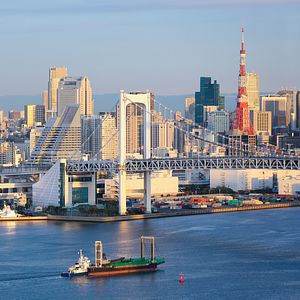Despite large pools of domestic capital and new government policies set to improve the ease of doing business in Japan, there is little evidence of large-scale corporate investment in new projects in Japan. Even the government has begun looking for better growth opportunities abroad, with major infrastructure investments recently planned for Bangladesh and India. Despite Prime Minister Shinzo Abe’s new plans to reduce corporate taxes and rejuvenate labor policy, most major Japanese companies continue to bet on overseas growth, as return on investment becomes increasingly difficult in the context of unfavorable Japanese demographics.
Japanese banks continue to offer annual interest rates as low as 0.1 percent, yet are finding it increasingly tough to locate borrowers among their preferred, less risky clientele. According to data compiled by the Nikkei Asian Review, in 2013 venture capitalists invested 170 billion yen ($1.59 billion), roughly five percent of the U.S. equivalent. The article also found that “Some banks logged domestic investment yields of zero or less in their results for the fiscal year ended March 2014 — meaning no matter how much the banks lend, they cannot generate a profit.”
Despite an apparent aversion to both borrowing and lending at home, Japanese companies still plan on paying out record interim dividends this year. Payouts through the six months ending September 30 increased 10 percent, while the dividend payout ratio rose 4 percent to 27 percent for the same period. The companies surveyed were confident that full-year profits would justify the large payouts. These companies are clearly expecting to generate enough growth to justify record payouts, but there does not appear to be much evidence of large-scale new reinvestment in Japan. It appears that a substantial portion of both the profit and investment is happening abroad, specifically in South and Southeast Asia.
In many ways the Japanese government is leading the charge for domestic companies to prosper and grow overseas. In just the past few weeks the Abe government has pledged 3.5 trillion yen ($33.9 billion) in investments for India and $6 billion in Bangladesh. In both cases Japanese companies will be looking to win contracts, specifically in rail, port facility, and other infrastructure projects. Japan’s national rail companies like JR East are battling with Chinese companies for new high-speed rail projects in India and across Southeast Asia, specifically for a $12 billion project to connect Malaysia’s capital of Kuala Lumpur with Singapore. For Japan’s large rail manufacturers, projects in rapidly developing population centers like Southeast Asia represent one of very few places for new growth, as the domestic market is already reaching full capacity for rail infrastructure.
Several of Japan’s other major corporations have announced major investments in the region. Mitsubishi Motors Corp is planning a large new production facility in Indonesia. The 64 billion yen ($600 million) factory will not only produce 80,000 vehicles annually outside Japanese shores, but Mitsubishi will sell almost all of them in the region as well. Aeon, a major Japanese retailer, plans to double its sales in Southeast Asia over the next three years to 500 billion yen by expanding from its regional base in Malaysia, while growing the number of outlets 10 percent to 144. After Japan’s pledge to develop infrastructure in Bangladesh, Honda is planning a new site to build between 100,000 and 200,000 motorbikes a year. Given Bangladesh’s large population and growth rate, combined with a motorbike market expected to expand 150 percent to 500,000 units in fiscal 2020, Honda is also banking on substantial regional growth.
In countries that were once part of a supply chain to provide cheaper goods to Japanese and other developed markets, Japanese companies are now looking to keep entire industries offshore, from production to final sale. Without the prospect for growth in either Japan’s consumer base or individual purchasing power, Japanese companies will continue to skew their business development plans overseas.
































